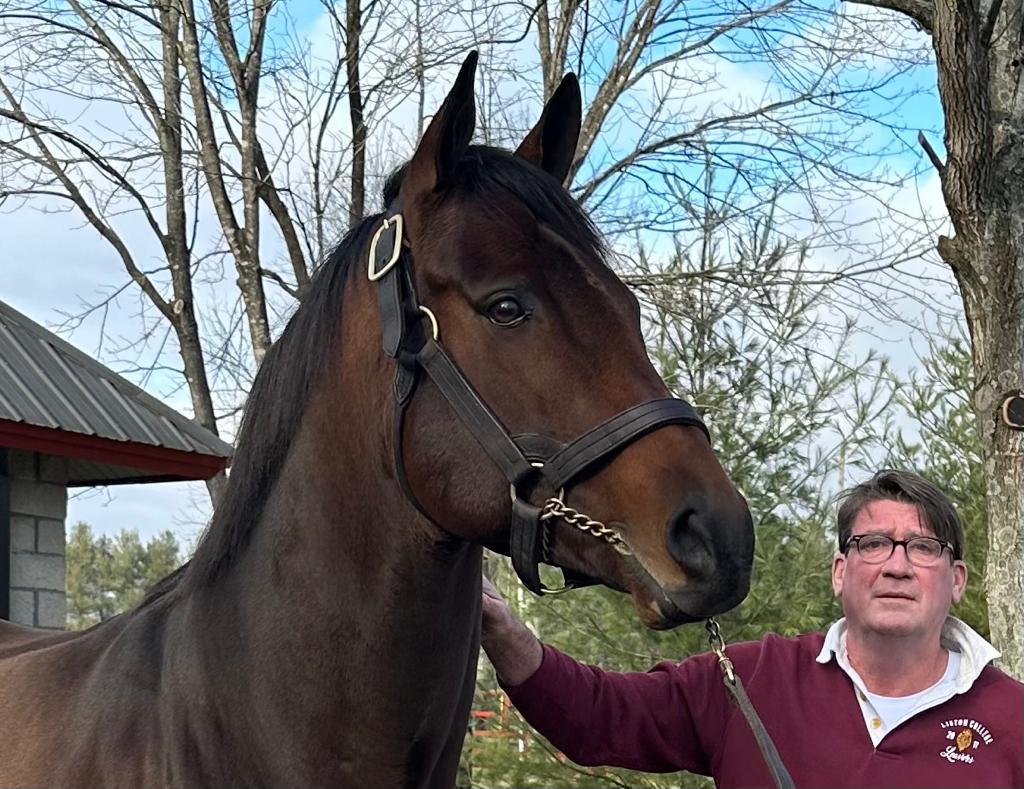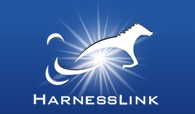Louisville, KY — When the press release about 2022 Preakness victor, Early Voting, was posted on the Paulick Report on Jan. 10 it was a feel-good story about how a horse can recover for a second career.
How is this tied to harness racing?
Because the techniques were developed through aiding Standardbred stallions in the breeding shed. The most notable being New Zealand champion, Christen Cullen, with the same veterinarian at the helm: Dr. Paddy O’Casaigh BVSc, PhD, MRCVS.

“We have treated a number of Standardbred horses for anejaculatory syndrome,” said O’Casaigh. “I suppose the most notable was Christen Cullen down in New Zealand in the 2001 season. I wish we had chaperonze proteins back then to treat him with. Things would have gone a lot smoother.
“Everything starts with a protein. The messenger RNA goes into the cytoplasm and goes along to a ribosome and says, ‘I want to make a protein.’ But what if the ribosome says, ‘Sorry, the cell’s function is not allowing me to make a protein at the moment.’ Then you’ve got a translation problem, and it turns out this is all regulated by the chaperone protein axis.”
Christen Cullen is the New Zealand Hall of Fame and a two-time Horse of the Year Down Under. He might have required a bit of help to progress to be prolific in the breeding shed but he did not disappoint. In fact, the stallion became the first to shuttle to North America for his duties from his New Zealand.
So clearly O’Casaigh is clearly no stranger to science or Standardbreds. The native of New Zealand plied his trade in Kentucky beginning in 1999 and during his studies in the U.S. became acquainted with Dr. Norman Umphenour, who has quietly operated behind the scenes as one of the elite equine reproductive specialists in the world.
Umphenour was employed at Hanover Shoe Farms and cared for the likes of Hall of Fame members Hoot Mon, Star’s Pride, and Ayers, before relocating to Pine Bush Farm in New York where he had the pleasure of attending to another select duo in Romeo Hanover and Speedy Count.
He then connected with John Gaines, the founder of Gainesway Farm, and crossed paths with farm manager, Joe Taylor. Under Taylor’s tutelage, Gainesway Farm, was a dominant force in the Standardbred industry before striking out solely in Thoroughbreds. The team captured two Hambletonians and four Kentucky Futurities.
Taylor’s four sons inherited his adoration of horses and operate the family-owned and operated Taylor Made Farm and Taylor Made Sales Agency in Nicholasville, KY. The Taylor family was responsible for importing the New Zealand sensation Lazarus N.
He was a two-time Horse of the Year in the country of his birth and the Australian Horse of the Year. The son of stallion sensation Bettor’s Delight out of Bethany, a Christen Cullen mare, was a 15-time Group 1 victor with five track records in New Zealand and three new track standards in Australia.
Lazarus N defeated 2018 Horse of the Year and multiple champion McWicked in his North American debut in the $325,000 Dan Patch Stakes at Harrah’s Hoosier Park on Aug. 10 of that year.
Retired in 2019 to stand at Deo Volente Farms in Flemington, NJ, Lazarus N has produced 87 winners from 125 U.S. starters and his progeny have collected $4.6 million. His top performers are New Jersey champion Voukefalas ($571,250) and 2022 Breeders Crown elimination winner Handlelikeaporsche ($296,147).
“We have learned so much from treating Standardbred stallions,” O’Casaigh said. “With artificial insemination since 1989 we can do a lot more for them.
“We have applied a large amount of what we have learned from Standardbreds to help Thoroughbreds. This is simply one of the many connections between breeds that each can benefit from.”
The moral of the story is this: the relationships developed over time transcend breed restrictions, boundaries, and assumptions.
Science is the baseline, but humanity and the love of equines break down walls and provide horses with their best lives.

 USA
USA Canada
Canada Australia
Australia New Zealand
New Zealand Europe
Europe UK / IRE
UK / IRE


